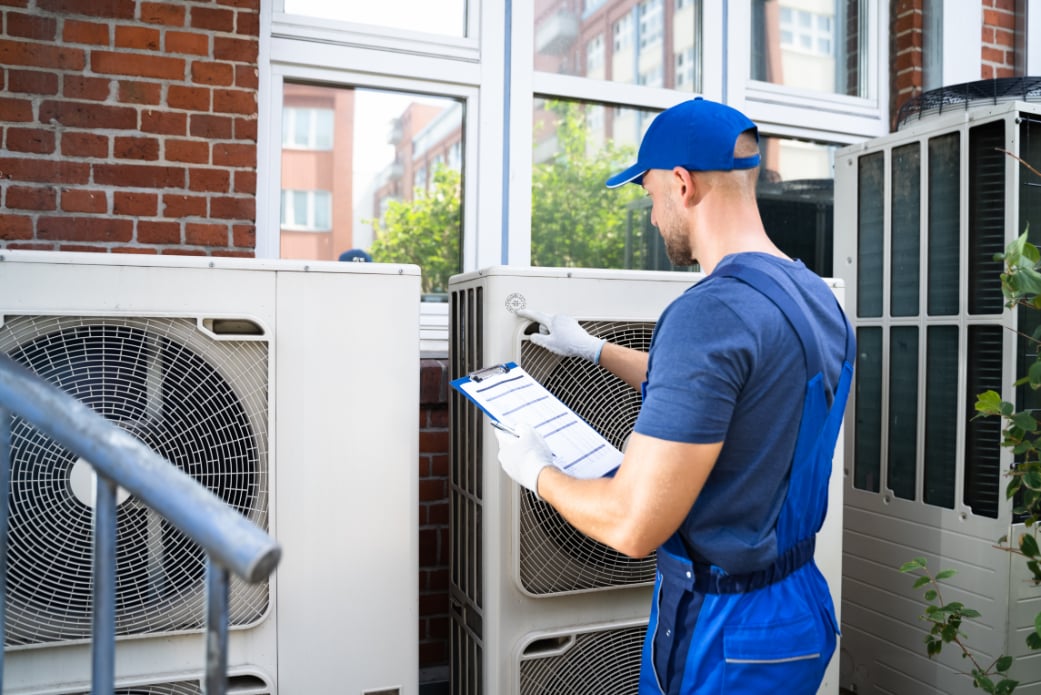
Ensuring Comfort: Navigating HVAC System Repairs with Expertise
Maintaining a comfortable home environment involves keeping your HVAC system in top shape. When issues arise, timely HVAC system repairs are crucial to restore efficiency and prevent further complications. Explore the key aspects of HVAC system repairs to ensure your home stays cozy and energy-efficient.
1. Understanding Common HVAC Issues: A Diagnostic Overview
Before diving into HVAC system repairs, it’s essential to understand common issues that may arise. From malfunctioning thermostats to refrigerant leaks and airflow restrictions, a thorough diagnostic assessment helps pinpoint the root cause of the problem. Identifying issues accurately lays the foundation for effective repairs.
2. Importance of Regular Maintenance: Preventing Future Problems
Prevention is often the best strategy when it comes to HVAC system repairs. Regular maintenance, including cleaning filters, inspecting components, and lubricating moving parts, can mitigate the risk of breakdowns. Consistent upkeep not only enhances system longevity but also ensures optimal performance and energy efficiency.
3. DIY Troubleshooting: Safe Steps for Homeowners
While some HVAC system repairs require professional expertise, there are simple troubleshooting steps homeowners can take. Checking thermostat settings, inspecting air filters, and ensuring vents are unobstructed are basic tasks that can resolve minor issues. However, for complex problems, it’s advisable to consult with a qualified technician.
4. Signs of a Malfunctioning HVAC System: When to Seek Repairs
Being proactive in recognizing signs of HVAC issues is crucial. Unusual noises, inconsistent heating or cooling, and increased energy bills may indicate a malfunction. If you observe any of these signs, it’s time to schedule HVAC system repairs to address the problem promptly.
5. HVAC System Repairs vs. Replacement: Making Informed Decisions
In some cases, HVAC system repairs may not be sufficient, and replacement becomes a viable option. Factors such as the age of the system, the extent of damage, and energy efficiency considerations play a role in this decision. Consulting with a knowledgeable HVAC professional helps in making informed choices.
Explore HVAC System Repairs at PlayAsSustentable.com
For comprehensive insights into HVAC system repairs and expert advice, visit PlayAsSustentable.com. This resource offers valuable information to guide you in understanding, maintaining, and repairing your HVAC system effectively.
6. Professional Assessment: The Role of Certified Technicians
When facing HVAC system issues, seeking the expertise of certified technicians is paramount. Professionals possess the knowledge and tools to conduct a thorough assessment, identify underlying problems, and execute precise repairs. Relying on certified technicians ensures the quality and safety of HVAC system repairs.
7. Addressing Refrigerant Leaks: A Delicate Repair Process
Refrigerant leaks are a common issue that requires immediate attention. Handling refrigerants is intricate and requires specialized knowledge. Certified technicians can identify leaks, repair the damage, and recharge the system with the appropriate refrigerant, ensuring the efficient operation of your HVAC system.
8. Ductwork Repairs: Optimizing Airflow for Efficiency
Damaged or leaky ductwork can compromise the efficiency of your HVAC system. Professional technicians can assess the condition of the ducts, seal leaks, and repair any damage. Optimizing the airflow through well-maintained ductwork is essential for consistent heating and cooling throughout your home.
9. Upgrading Components for Efficiency: Smart Repairs
In some cases, HVAC system repairs may involve upgrading components for enhanced efficiency. This could include installing a programmable thermostat, upgrading to a more efficient blower motor, or integrating smart technologies. Such upgrades not only resolve immediate issues but also contribute to long-term energy savings.
10. Preventing Future Issues: Post-Repair Maintenance Tips
After completing HVAC system repairs, it’s crucial to implement preventive measures to avoid future issues. Regularly changing air filters, scheduling annual professional maintenance, and being mindful of system usage can contribute to the longevity and reliable performance of your HVAC system.
In conclusion, navigating HVAC system repairs requires a combination of preventive measures, professional expertise, and informed decision-making. By understanding common issues, recognizing signs of malfunction, and relying on certified technicians, you can ensure your HVAC system operates efficiently, providing comfort and energy savings for your home. For additional guidance, visit PlayAsSustentable.com.

